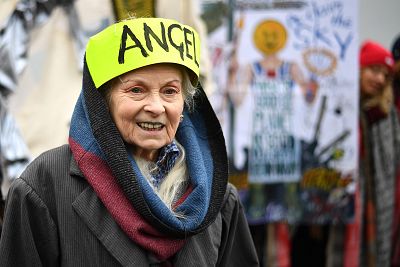"Reporting or journalism is not an excuse for criminal activities or a license to break ordinary criminal laws," says lawyer representing U.S.
LONDON — WikiLeaks founder Julian Assange is wanted in the U.S. over the publication of classified documents because he put live at risk, the lawyer in a U.S. extradition hearing said in a courtroom in London on Monday.
 ADVERTISEMENT
ADVERTISEMENT
 ADVERTISEMENT
ADVERTISEMENT
U.S. authorities want to try Assange on espionage charges that carry a maximum sentence of 175 years in prison over the 2010 publication of hundreds of thousands of secret military documents and diplomatic cables.
The extradition hearing follows years of subterfuge, diplomatic dispute and legal drama that have led the 48-year-old Australian from fame as an international secret-spiller through self-imposed exile inside the Ecuadorian Embassy in London to incarceration in a maximum-security British prison.
Assange has beenindicted in the U.S. on 18 charges over the publication of the documents. Prosecutors say he conspired with U.S. army intelligence analyst Chelsea Manning to hack into a Pentagon computer and release hundreds of thousands of secret diplomatic cables and military files on the wars in Iraq and Afghanistan.
Assange argues he was acting as a journalist entitled to First Amendment protection, and says the leaked documents exposed U.S. military wrongdoing. Among the files published by WikiLeaks was video of a 2007 Apache helicopter attack by American forces in Baghdad that killed 11 people, including two Reuters journalists.
Journalism organizations and civil liberties groups including Amnesty International and Reporters Without Borders say the charges against Assange set a chilling precedent for freedom of the press.
Lawyer James Lewis, representing the U.S. government, said it was not the role of the British court to determine whether Assange was guilty.
"This is an extradition hearing, not a trial," he said. "The guilt or innocence of Mr. Assange will be determined at trial in the United States, not in this court."
Lewis said Assange was guilty of "straightforward" criminal activity.
"What Mr. Assange seeks to defend by free speech is not the publication of the classified materials, but he seeks to defend the publication of sources — the names of people who put themselves at risk to assist the U.S. and its allies," the lawyer said.
"Reporting or journalism is not an excuse for criminal activities or a license to break ordinary criminal laws."
Supporters of Assange gathered outside the high-security London courthouse, and could be heard inside the courtroom as well. Some observers in an overflow room waved and blew kisses to Assange who was seated at the back of the courtroom.
Earlier, Assange entered the dock at Woolwich Crown Court's court number 2, and spoke to confirm his name and date of birth. He nodded towards reporters before taking his seat.
Assange's legal saga began in 2010, when he was arrested in London at the request of Sweden, which wanted to question him about allegations of rape and sexual assault made by two women. He refused to go to Stockholm, saying he feared extradition or illegal rendition to the United States or the U.S. prison camp at Guantanamo Bay, Cuba.
In 2012, Assange sought refuge inside the Ecuadorian Embassy, where he was beyond the reach of U.K. and Swedish authorities.
For seven years Assange led an isolated and increasingly surreal existence in the tiny embassy, which occupies an apartment in an upscale block near the ritzy Harrod's department store. The relationship between Assange and his hosts eventually soured, and he was evicted in April 2019. British police immediately arrested him for jumping bail in 2012.
Sweden dropped the sex crimes investigations in November because so much time had elapsed, but Assange remains in London's Belmarsh Prison as he awaits a decision on the U.S. extradition request.
For his supporters around the world, Assange remains a hero. But many others are critical of the way WikiLeaks has published classified documents without redacting details that could endanger individuals. WikiLeaks has also been accused of serving as a conduit for Russian misinformation, and Assange has alienated some supporters by dallying with populist politicians including Brexit-promoter Nigel Farage.
An end to the saga could still be years away. After a week of opening arguments, the extradition case is due to break until May, when the two sides will lay out their evidence. The judge is not expected to rule until several months after that, with the losing side likely to appeal.
If the courts approve extradition, the British government will have the final say.
The case comes at delicate time for transatlantic relations. The U.K. has left the European Union and is keen to strike a trade deal with the U.S.











